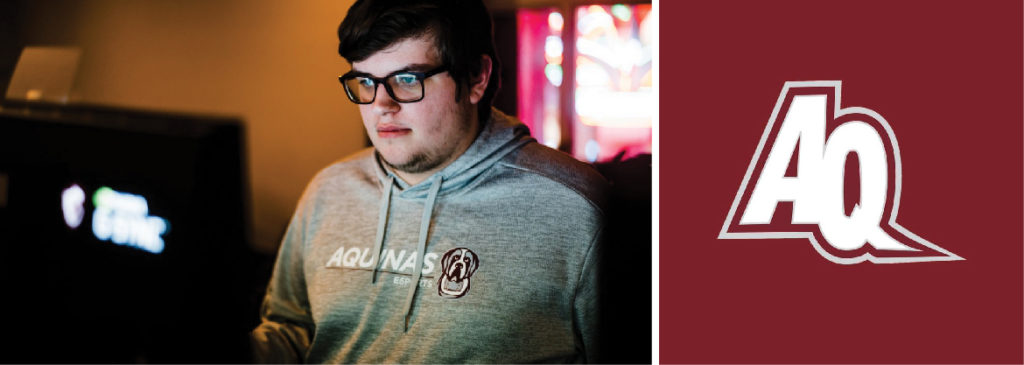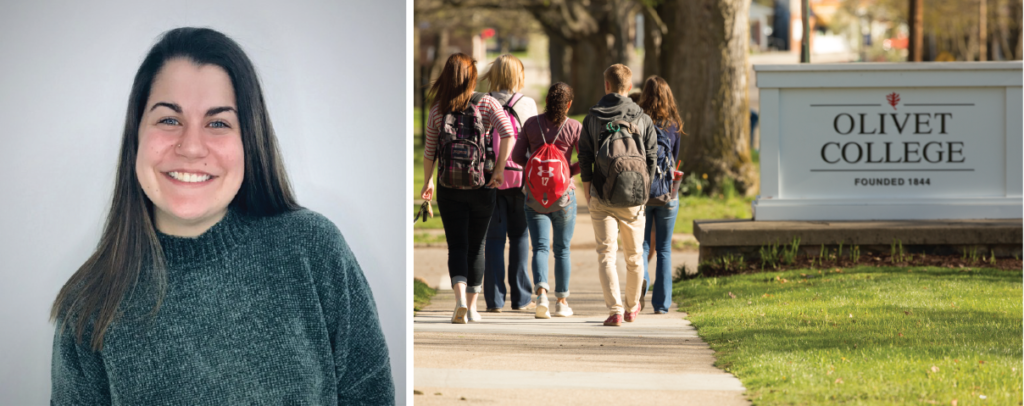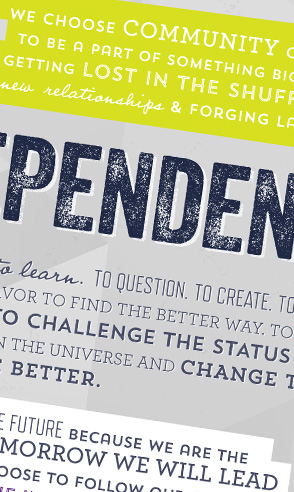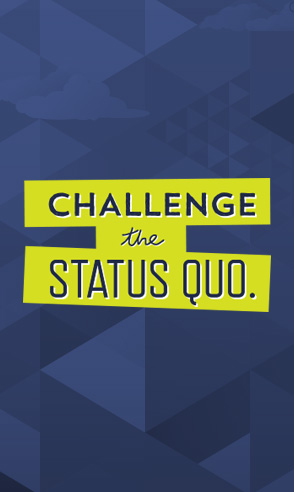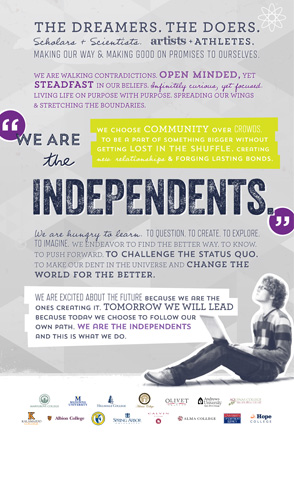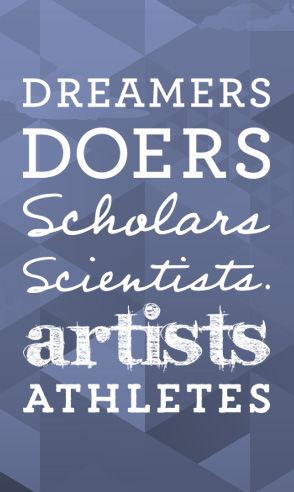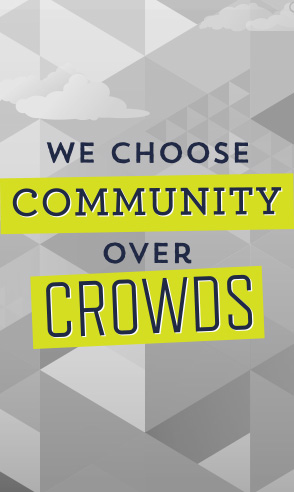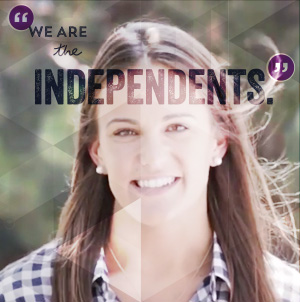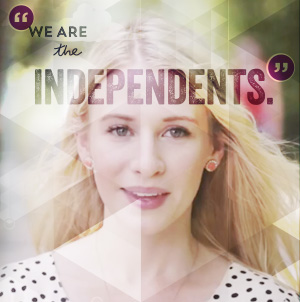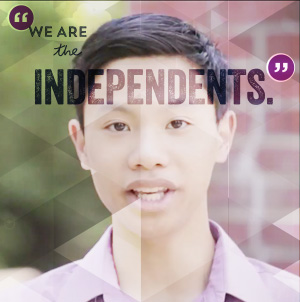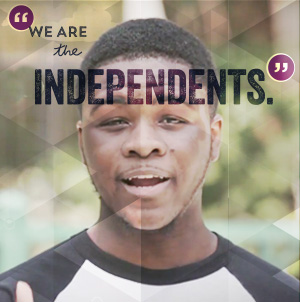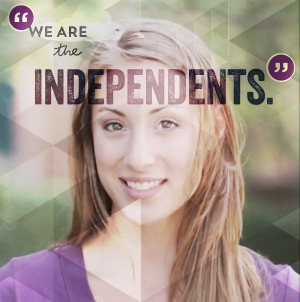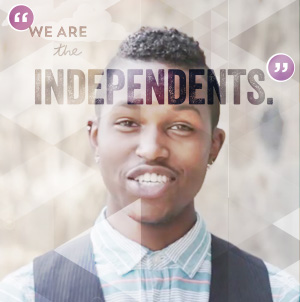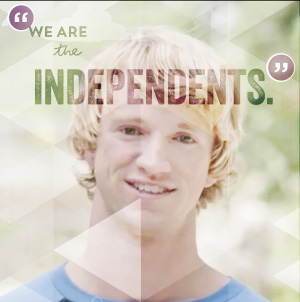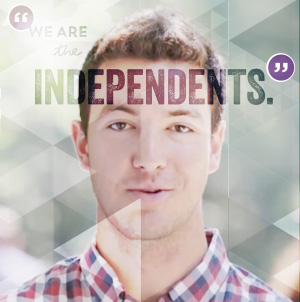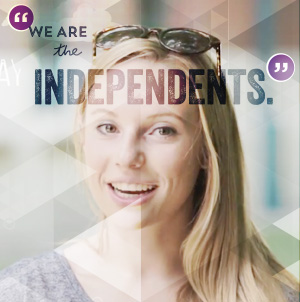Blog - Category: Campus Life
Andrews University Student Association 2025-26 Senator Projects
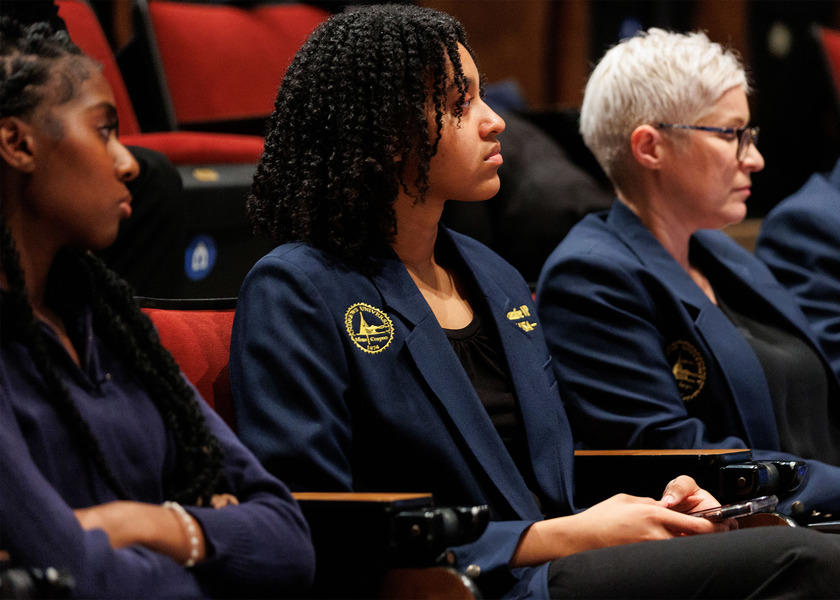
Each year, members of the Andrews University Student Association (AUSA) Senate are required to complete a campus-wide project that works to improve the student experience. This year, as the executive vice president of AUSA, I had the privilege of managing 27 senators as they completed great projects all around campus. Each project has a label indicating that it was “donated by the AUSA Senate 2025-26,” so keep an eye out for them around campus. Below is a list of each project and the senators who accomplished them.
1. Feminine products in various campus bathrooms: Rohannah Riley (junior, elementary education) and Celeste Velinova (junior, digital communications)
For this project, Riley and Velinova placed baskets of free menstrual products in the women’s bathrooms in Buller Hall, Nethery Hall, Harrigan Hall, and Bell Hall for students to use.
2. Cookware for Burman Kitchen: Yuseli Ochoa (senior, Spanish and speech-language pathology and audiology) and Niels ten Caat (sophomore, history)
For this project, Ochoa and ten Caat placed a new 23-piece nonstick ceramic cookware set in University Towers for students to check out and use.
3. Games for Lamson Hall: Nora Jean-Francois (junior, psychology), Shannon Barrow (sophomore, computer engineering), and Melody Pemberton (junior, history and secondary education)
For this project, senators purchased new board and card games (Uno, Dutch Blitz, Monopoly and Apples to Apples) to replace old games. Students can check out the games from the Lamson front desk to enjoy with their friends.
4. Study Bible Guides: Pau Khual (freshman, theology) and John Hakobyan (senior, computer science and history)
For this project, senators provided free Bible study guides for small groups to give students the resources needed to study the Word and grow in their faith. Students were encouraged to fill out the form the senators created in order to obtain a copy of the guide through the Center for Faith and Engagement (CFE).
5. Nintendo Switch and Games: Zachary Kis (sophomore, aviation) and Dean Caleb (sophomore, psychology)
For this project, senators purchased a Nintendo Switch and the games “Mario Kart” and “Super Smash Bros” for students to play in the AUSA recreational center downstairs in the campus center. Students can check the switch out at the front desk in the rec center.
6. PlayStation 5 (PS5) Headphones and Games: Donnie Vanterpool (senior, information systems) and Dean Caleb
For this project, senators purchased headphones for students to use while playing the PS5 in the AUSA recreational center downstairs in the campus center. They also added the games “EA Sports College Football 25” and “NBA 2K” to the PS5 and advocated for better ways to check out equipment from the rec center front desk.
7. Sports Equipment Replacement in Meier Hall: Raymond Manento (senior, computer science)
For this project, Manento replaced the basketballs and footballs found at the Meier front desk that students check out to use outside and ensured the proper storage and maintenance of the new equipment.8
8. New Ping Pong Table: Jonathan Pelote (freshman, theology), Kika Augusta (freshman, architecture), and Mugabe Menani (junior, nursing)
For this project, senators replaced the old ping pong table downstairs in the AUSA recreational center to enhance students’ experience with a newer, durable table.
9. Lamson Hall Courtyard Picnic Table: Brenna Lyons (junior, art and French), Valorie Pratley (freshman, sustainable horticulture), and Marky Telemaque (sophomore, political science and Spanish)
For this project, senators purchased and built a wooden picnic table to place in Lamson Hall’s cafeteria-side courtyard for students to enjoy on nice days when they need a break from studying.
10. SBSS Labianca Library: Audrey Lim (junior, sociology), Kaitlyn Yanez (sophomore, psychology), and Chrisan Valcin-Henry (senior, sustainable horticulture)
For this project, senators purchased new books to add to the Social Sciences and Behavioral Sciences Library on the second floor of Buller to provide diverse literary resources that reflect the experiences of various communities (Asian American, Latinx, Afro-Caribbean social movements, etc). They also purchased happy lights for the library, which assist with seasonal depression among library patrons.
11. Chapel Scanner Advocacy: Asha Caruthers (freshman, chemical engineering), Dévaneé Williams (sophomore, music composition), and Pierce Barrett (freshman, mechanical engineering)
For this project, senators worked with CFE to create a survey to gather student opinions on the current scanning-in and out methods used at Faith360 programs.
“I’m proud of all that the senators were able to accomplish this year,” said Patricia Fitting, assistant dean for co-curricular education and AUSA Senate mentor. “I believe they did a great job in providing some useful, fun, and positive projects to enhance campus life,” she said, despite the challenges that came with the process of choosing and gaining approval for their projects.
Calvin University Expands Degree Completion Programs to Serve Adult Learners
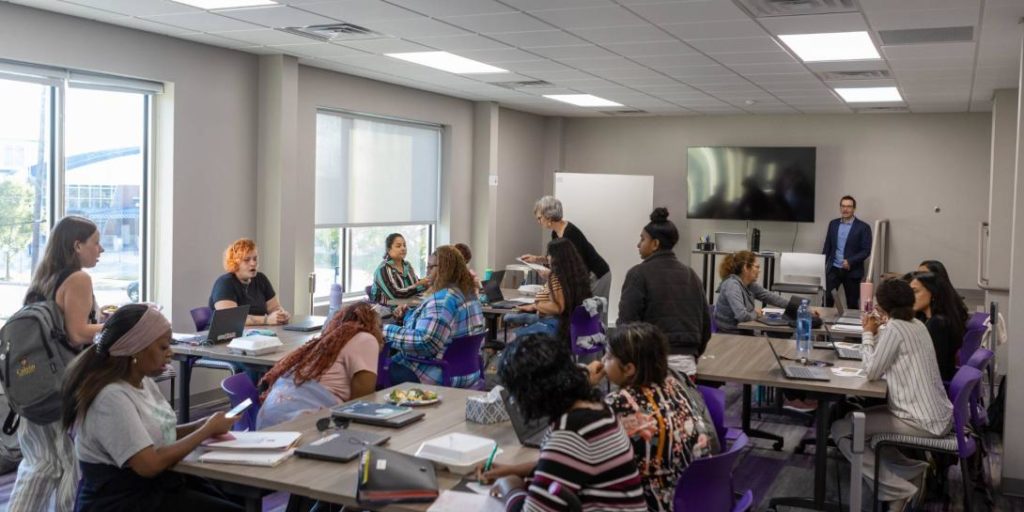
Written by John Zimmerman
Calvin University announces the launch of new programs designed for adult learners who started a bachelor’s degree but never completed it. Nearly two million Michiganders have some college credits but no degree, a significant portion of the state’s population. Calvin’s new degree completion programs offer two interdisciplinary, career-focused options to help this population complete their degree: Applied Leadership and Human Services.
“I’ve seen how earning a bachelor’s degree can impact the lives of adult learners,” shared Abbie Lipsker, director of continuing studies at Calvin. “From enhanced career opportunities to personal dream fulfillment and a more expansive view of the world, earning a BA can set whole families on a better trajectory.”
A Broader Vision for Lifelong Learning
These new programs are part of the university’s strategic expansion to address the needs of nontraditional students who are seeking an accessible, high-quality education that will advance their careers and their community impact. “Calvin University’s mission has always been rooted in serving a diverse range of learners, equipping them for leadership and service,” said Kevin den Dulk, associate provost. “These new programs reflect our ongoing commitment to opening doors for adult students, helping them overcome barriers and achieve their academic and professional goals.”
Hybrid Learning: Balancing Place-Based with Online
Built to ensure persistence, adult learners in these programs will meet on campus one evening per week alongside a cohort. With awareness of the competing priorities of adult learners, some coursework can be completed online asynchronously. “We understand the value of networks and learning from each other, especially in adult learner communities, where students bring so much prior learning to the classroom,” said Lipsker. “While much of the coursework can be done on a student’s own time during the week, having a place-based aspect will deepen the experience and facilitate interpersonal connections.”
Addressing Regional Workforce Needs
The Applied Leadership and Human Services degree completion programs join a growing roster of initiatives designed to enhance regional workforce development. Calvin offers a variety of non-credit professional development programs, such as Second Chance Hiring for HR professionals, as well as master’s degrees in nearly a dozen fields, including a Master of Social Work, the newest addition coming in fall 2025. These programs highlight the university’s commitment to meeting community and industry needs.
A Vision for the Future
The expansion aligns with Calvin’s Vision 2030 strategic plan, which emphasizes service to the city as a trusted partner, including offering accessible, flexible learning options that promote a thriving, healthy community. “Calvin’s mission invites us to think expansively about education,” den Dulk added. “We are excited to welcome a new wave of learners who will bring their talents and experiences to our Christ-centered community.”
Learn more about Calvin’s bachelor’s degree completion programs at calvin.edu/go/complete.
What to Bring—and Not Bring—to Campus
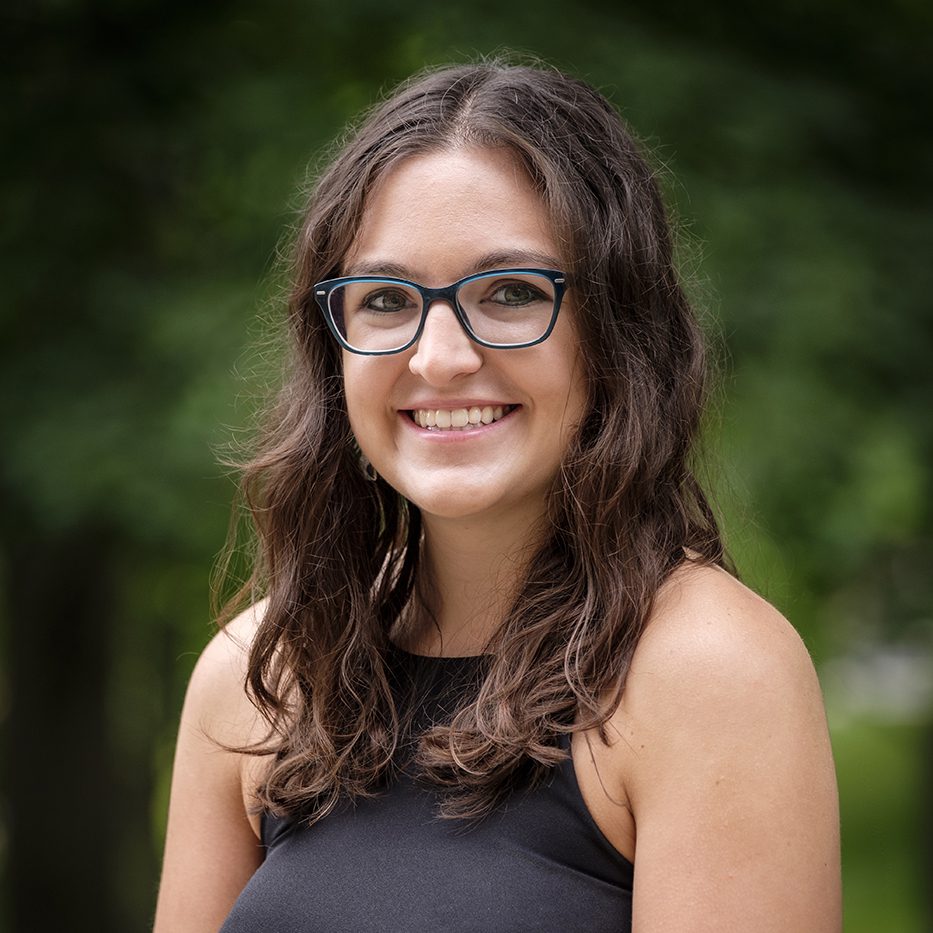
Originally posted at https://www.kzoo.edu/news/what-to-bring-to-campus-2021/
Written by Andy Brown.
Incoming Kalamazoo College students have several great sources for information on what to bring to campus this fall including Residential Living’s online guidance and advice from recent alumni such as Lezlie Lull ’20.
Lull, an admission counselor at K, lived on campus for two years including one as a resident assistant in Crissey Hall. Now, she has conversations with prospective students that include her advice for residence hall life.
“Some students come in very worried about having never shared a room before,” Lull said. “I make sure that they’re aware of knowing how we match roommates and their ability to contact a roommate in advance.”
After easing those concerns, and given her first-hand experience, Lull suggests considering what not to bring, communicating early and often with roommates, and including a few personal items that can make your room feel more like home and smooth your transition on move-in day, September 8.
What not to bring
Lull said what not to bring to campus is just as important as what to bring. Residential Living has a list of prohibited items. Plus, the idea that less is more can save space in close quarters.
“More often than not, I had too much in my room my first year,” she said. “I often thought, ‘Why do I have all of this?’”
A convenience item such as a microwave might seem like a good idea, she said, yet each hall lounge has one that’s immediately available, so it might not be a critical item. Rethink bringing anything that might just take up space or anything you can buy later in Kalamazoo. Residential Life doesn’t keep floor-plan measurements for specific rooms. However, students may look at pictures of residence hall rooms in K’s virtual tour to estimate their potential floor space and where space might be tight.
The one exception to the less-is-more idea might be cold-weather clothing.
“One thing for some—for out-of-state students especially—would be the importance of bringing sweaters and winter coats,” Lull said. “When the first cold weather comes in October, many are stuck with only a pair of jeans and flip flops.”
Communication is key
Even someone who is shy will benefit from reaching out to their assigned roommate before arriving on campus. K students living on campus this fall should already have received their room assignment with their roommate’s name and kzoo.edu email address. Sometimes the benefit is ensuring you don’t bring more than one of the same item. Other times, it helps set agreements between roommates as they get to know each other’s personal routines.
“My first roommate and I weren’t the best of friends, but we got along in the necessary areas,” Lull said. “I think the issues we had were all a lack of communication, whether that was in the moving process or later on. I think it’s a lot easier if you can talk to them in advance, so you don’t show up with two coffeemakers, two refrigerators or multiple items of everything in the room.”
Home sweet home
When packing, think about bringing a couple personal items you can set up out of the way to help your space feel a little more like home.
“A lot of our decorations were things we could sit on our desk or put on the walls with sticky tape,” Lull said. “I also had window stickers we could put up. Other than that, we didn’t necessarily have a ton of stuff. I had string lights to hang pictures from home. My mom made me a pillow that had a picture of me and my dog on it. We also got rugs for the tile floor.”
The week ahead
After you’re settled, the adventure of orientation begins. A schedule for orientation is available at the first-year experience website, and Lull suggests participating as much as possible.
“I think orientation is a really good time to meet a lot of people,” she said. “Some people don’t take advantage of that. Some think, ‘Well, I’m really tired at 8 a.m. They’re not going to know if I don’t show up.’ But how many people are you not meeting because you weren’t there? I think students should be open minded and ready to meet and do everything. Buy coffee if you need to wake up, dress in layers if it’s cool in the morning, and take a water bottle with you in case it gets hot.”
It also helps that Michigan’s top 14 independent colleges and universities set themselves apart from bigger public institutions by encouraging students to forge success by following their own path. The colleges are smaller and emphasize community over crowds. Often less expensive than public institutions, the independents boast higher four-year graduation rates and smaller class sizes for a truly unique and affordable experience.
Be bold. Be different. Go independent.
Five Tips for an Epic First Year
Originally posted at: https://www.alma.edu/live/profiles/8705-five-tips-for-an-epic-first-year
From taking notes to living away from home, your first year of college will go smoother if you know what to expect. Rely on current and recent students to offer the best advice.
Every college student has concerns or challenges during their first year. While some end up being no big deal, others may require some major changes. Liney Figueroa of Muskegon, now a senior at Alma College, offered these tips to students who are just starting out:
Try to have perfect attendance in your classes
There may be things that come up that make this impossible. But as far as a goal goes: go big or go home, right? Studies show that students who go to class and take notes do the best, regardless of how “smart” they might be. Plan your class schedule in a way that works best for you and pay attention to yourself more than anyone else. Liney uses a planner and charts every day out the night before, to make sure she’s prepared for whatever comes.
Take notes the old-fashioned way
I’m not going to tell you to never use your phone. More than likely, you know there’s a time and a place when it’s appropriate to use it and when it’s inappropriate — like, during a lecture. Consider using a pen and paper to write notes in class, instead of a laptop. Studies show you’ll remember more that way. You can always copy your notes to your laptop after class.
Meet with each of your professors for office hours at least once every term
Professors are required to set aside office hours, which are special days and times to meet with students in a 1-on-1 setting. You can usually find this information in the course syllabus you received at the start of the term. Your professors can help in all kinds of ways, in and out of the classroom — from going over coursework in a private environment, to discussing college life, to figuring out life after college. More importantly, your professors WANT to help — so help them, and take that first step toward getting to know them better.
Ask for help when you need it
The difference between “high school you” and “college you” is that you’ll be the main person in your life who deals with your problems. Even as a high achiever in high school, Liney found that college was more challenging. She wasn’t used to asking for help for her classwork, but eventually came around to the idea that she couldn’t deal with everything by herself. Ask around and seek out the BEST person to help you with your individual problem. For example: a resident assistant can help with issues in your residence hall, an academic advisor can help choose your major and a health professional can help with anxiety.
Join at least one extracurricular activity
So far, we’ve mostly focused on academics — with good reason, because doing well in your courses is the best way to have success after you graduate. But using your time away from class in constructive ways is also important. Joining an extracurricular activity gives you an easy way to meet other college students who are going through the same things you are. Liney said coming to college seemed intimidating at first, until she started getting more involved in student affairs. There, she said, she found fun things to do in her free time and made friends for life.
Michigan Colleges Alliance Bonus Tip: Be Different.
Consider Michigan’s top 14 independent colleges and universities, where students forge success by following their own path. The colleges are smaller and emphasize community over crowds.
Often less expensive than public institutions, the independents boast higher four-year graduation rates and smaller class sizes for a truly unique and affordable experience.
Be bold. Be different. Go independent.
Aquinas freshman named esports All-American
Real-time strategy, teamwork, mental agility, split-second decision-making – these are some of the skills it takes to succeed in one of the fastest growing athletic programs in the country – esports.
Esports is a massive, global series of video game competitions, that is making serious inroads in the college sports arena.
The Aquinas College esports team just completed its first season and already one team member is making waves. Jon Schneck, an AQ freshman, was named an All-American by the National Association of Esports Coaches and Directors (NAECD)—one of only eight in the country.
“It was a little bit of a surprise that I would be an All-American because I don’t think of myself that highly,” Schneck said. “But it is great that I got recognized.”
Jon may have been caught off guard by the recognition, but head coach Adam Antor says it is well deserved because of his hard work and knowledge.
“He is kind of like the master knowledge base for the game,” Antor said of Schneck. “He knows more about the game than most other competitors in our program and across the country so he brings the brains and the work ethic.”
Jon competes in League of Legends. It’s a game he said he’s been playing since before he got to Aquinas. Next season, Jon plans to continue his streak. “I am looking forward to just winning in any league I’m going into,” Schneck said. “Building a better team and making sure that we can compete at the highest level against all the other teams.”
The Aquinas College team joins other Michigan private colleges and universities in offering esports. Alma College and Siena Heights University also field excellent competitive esports programs.
Aquinas, Alma and Siena Heights – and all of Michigan’s top 14 private colleges and universities – share a commitment to helping students succeed by following their own path. The colleges are smaller and emphasize community over crowds. Often less expensive than public institutions, the independents boast higher four-year graduation rates and smaller class sizes for a truly unique and affordable experience.
Be bold. Be different. Go independent.
Coolest College Mascots Aren’t Just at Big Universities
It’s National Mascot Day, where we celebrate the fun, sometimes feathery or furry creatures who entertain us and build team spirit at sporting events.
Lists of top college mascots often begin and end with big public universities (Hello Puddles the Oregon Duck), sometimes with a few curveballs thrown in (pleased to meet you, Scottsdale Community College Fighting Artichokes.)
But it’s not just big public universities that have fun with their sports and mascots. They’re just as beloved at independent colleges and universities as well. Let’s meet some Michigan favorites:
Dutch from Hope College
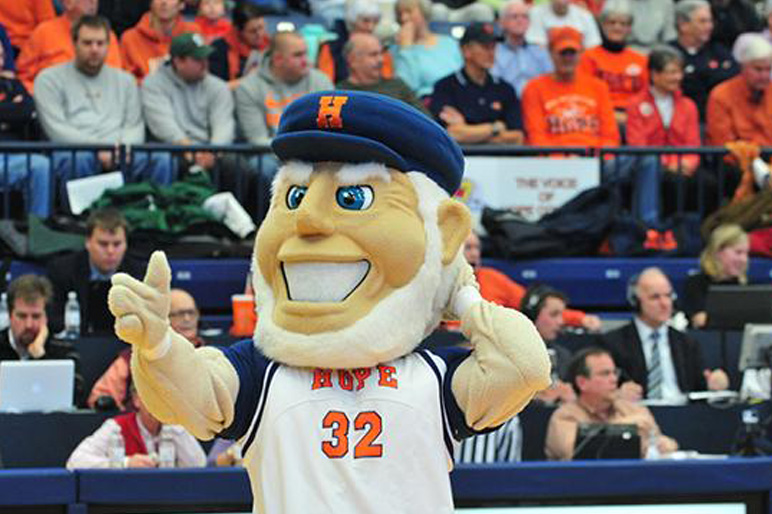
Ruggedly handsome. And what a hat! The mucho macho mascot of Hope College was created during the 2006-07 academic year for the school. Fun fact: His face is loosely modeled after a mailroom employee, Bob Bos. Founded by immigrants from the Netherlands, Hope College became known as the Flying Dutchmen since 1959 when its basketball team took a DC3 to a tournament. The women’s teams are known as the Flying Dutch. Of course.
Tommy Titan from the University of Detroit Mercy
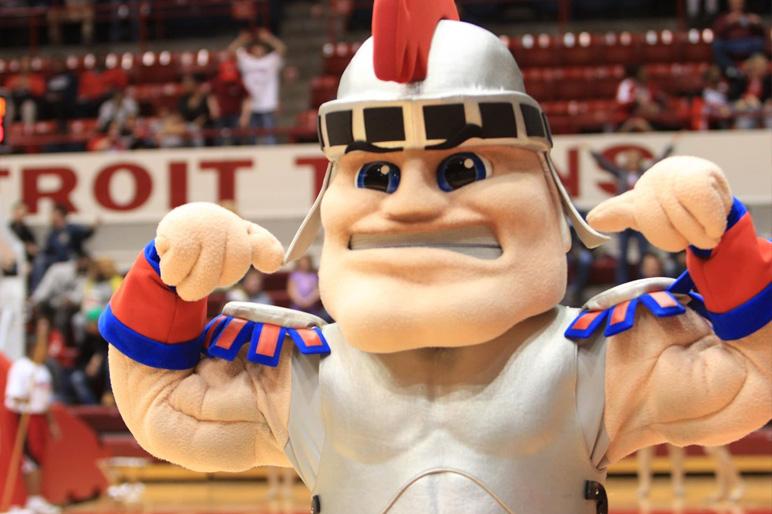
Ever try running 3.1 miles in a warrior helmet and bracelets? It’s not easy. But it’s nothing for Tommy Titan, the beloved mascot from the University of Detroit Mercy who for 28 years has had a 5K run named in his honor every November. Top that off with all the excitement of representing #DetroitsCollegeTeam, and life is pretty good for Tommy Titan.
Calvin Knight from Calvin University

He stands for chivalry, honor and integrity. Sure. That’s true now. But he originally stood for misunderstanding. Calvin University’s mascot, the Knights, emerged in the late 1920s when a reporter from the Grand Rapids Press heard the school was populated by “Calvinites.” Ugh. Bad pun. We know. Like their counterparts at Hope, Calvin students wanted a real mascot and got one after a Facebook campaign began in the mid-2000s. Calvin Knight debuted in February 2009.
Brit the Briton from Albion College
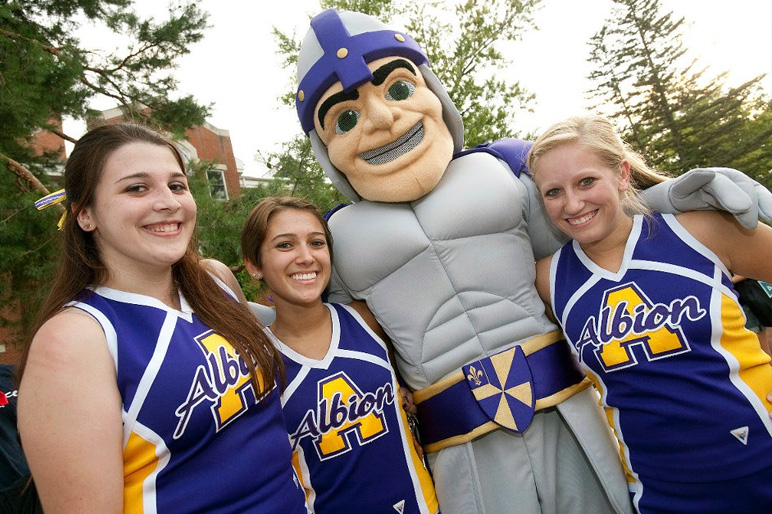
Albion College debuted this rugged fellow in the fall of 2011. The first mascot in 176 years at Albion, he was chosen, because he represents the college’s “longstanding tradition of dignity, discovery and professionalism.” He also looks smashing. Brit looks like he and Tommy Titan would be a formidable duo at tug o’ war.
Scotty from Alma College
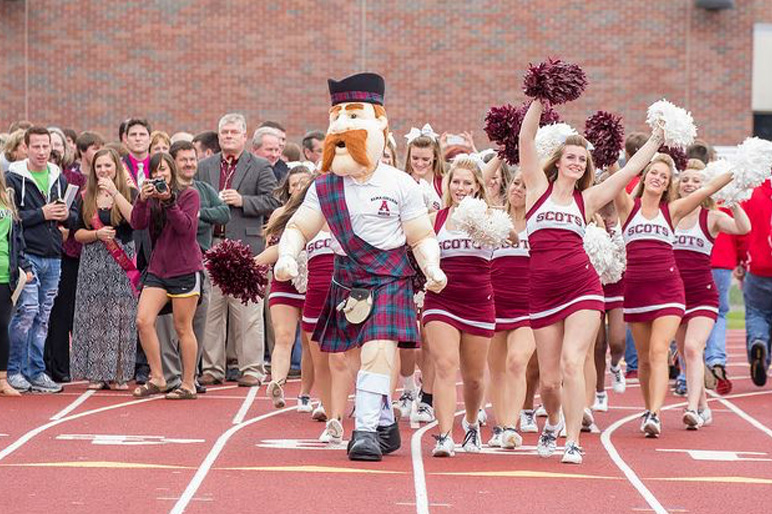
He’s got a mustache that would make Yosemite Sam jealous and Scotty from Alma College is a whole lot easier to cheer for than the “Fighting Presbyterians.” It sounds like a joke, but that was Alma’s mascot until 1931. Hard to believe as it was, but students tired of shouting, “Go Fighting Presbyterians” at football games and the student newspaper launched a three-week contest for a replacement. The winner got $5. Cold hard cash. A few years ago, Scotty got a makeover before homecoming. He’s never looked better!
Buzz the Hornet from Kalamazoo College
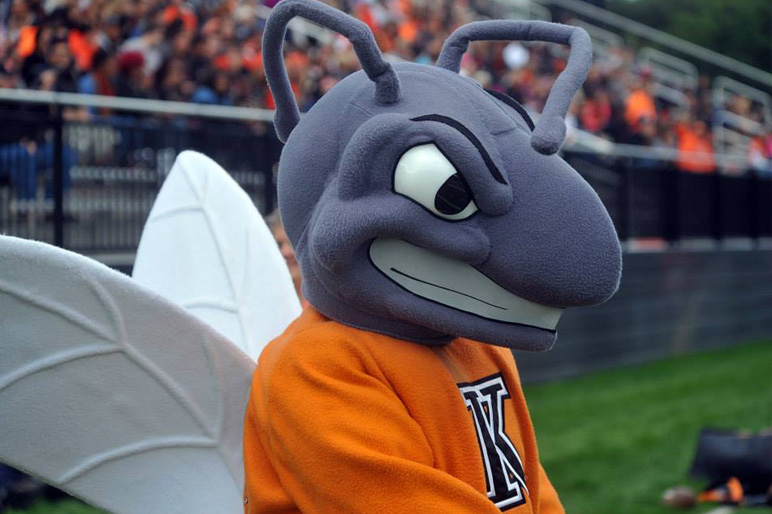
Power of the press! Kalamazoo College’s mascot got its name from – you guessed it – a newspaper reporter, this time from the Kalamazoo Gazette who said thought the football team was “buzzing around enthusiastically and stinging the opponents.” A mascot was born in 1925. Before then, athletic teams were occasionally called the Orange and Black, or even the Kazooks!
Nelson from Aquinas College
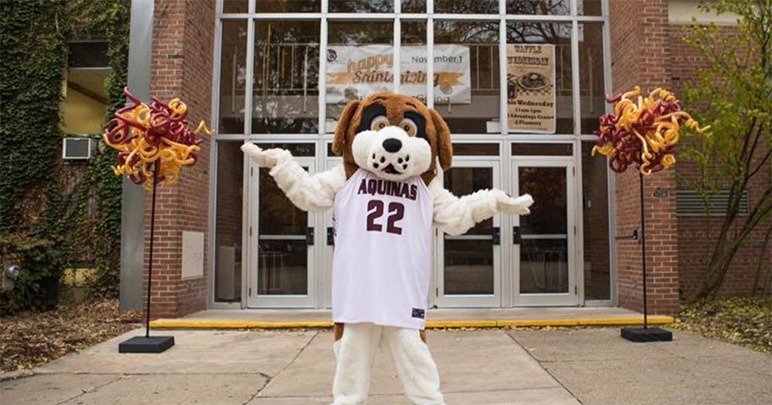 Aquinas College is known as the Saints. Their mascot is Nelson, a Saint Bernard named after the college’s fourth president, Paul Nelson.
Aquinas College is known as the Saints. Their mascot is Nelson, a Saint Bernard named after the college’s fourth president, Paul Nelson.
Charger from Hillsdale College
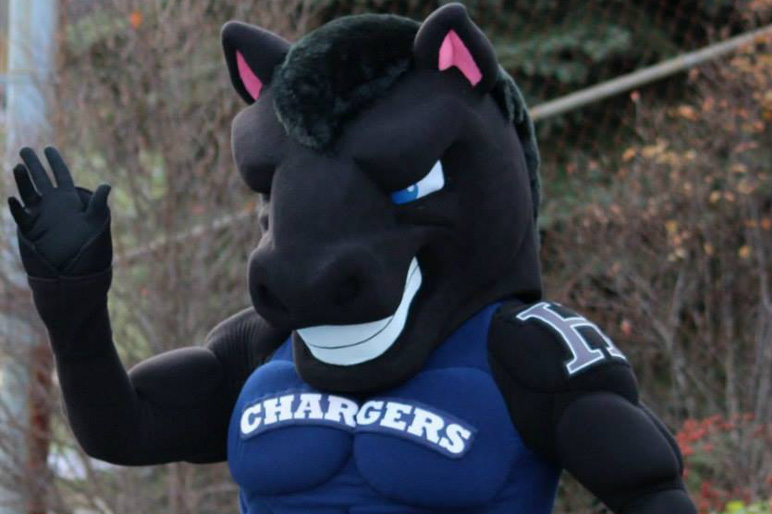
Hillsdale College students got tired of lacking a true mascot about 10 years ago and chose a horse over contenders such as a lightning bolt to represent their nickname, the Chargers.
Bruiser the Bulldog from Adrian College
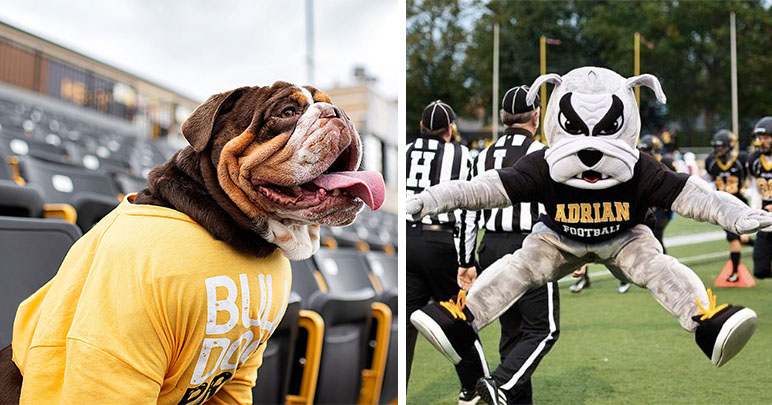 There are 36 colleges across the nation who have a Bulldog as their mascot and 16 of those schools have live mascots. But not many mascots can say they have a mascot. Bruiser the Bulldog can. Adrian College‘s adorable pup Bruiser soaks up the limelight and tummy rubs at campus events, hockey games and football games. But when the big dog on campus needs a break, a giant foam Bruiser mascot costume springs into action.
There are 36 colleges across the nation who have a Bulldog as their mascot and 16 of those schools have live mascots. But not many mascots can say they have a mascot. Bruiser the Bulldog can. Adrian College‘s adorable pup Bruiser soaks up the limelight and tummy rubs at campus events, hockey games and football games. But when the big dog on campus needs a break, a giant foam Bruiser mascot costume springs into action.
Cruzer the Crusader from Madonna University
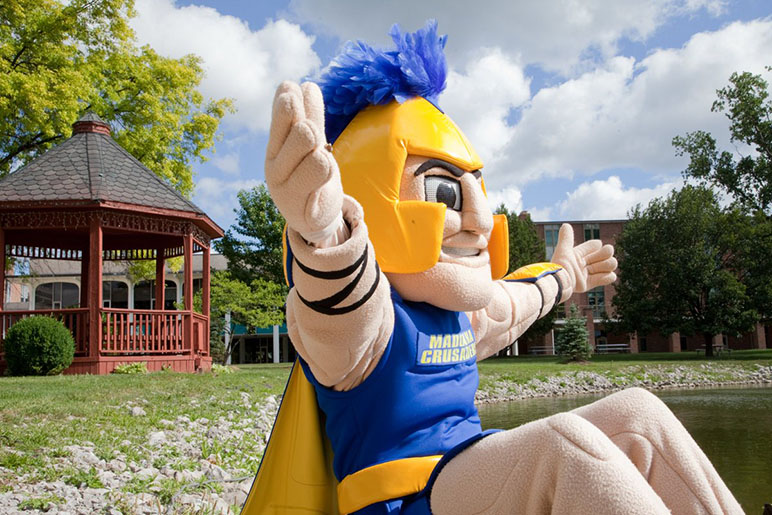 Madonna University debuted Cruzer in 2017. Cruzer enjoys cheering the Madonna Crusaders to victory, showing off his dance moves, and shooting hoops.
Madonna University debuted Cruzer in 2017. Cruzer enjoys cheering the Madonna Crusaders to victory, showing off his dance moves, and shooting hoops.
Haley and Cylde from Olivet College
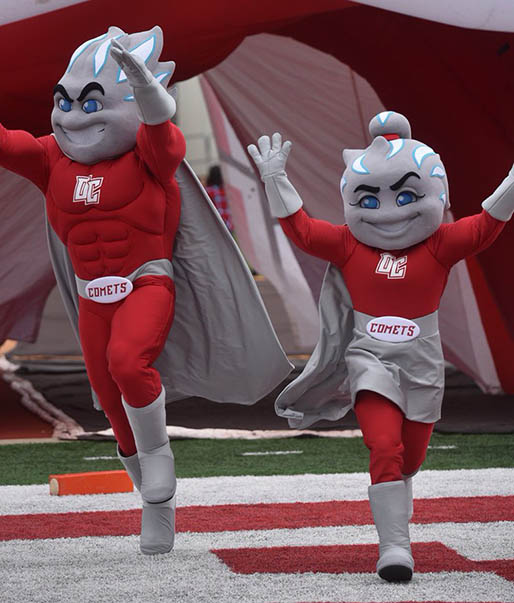
Over the years, Olivet College has had several unofficial mascots including a number of dogs and even a sheep. But in 1932, students and faculty were invited to submit names that signified action, speed and mobility – with the eventual winner being the Comets. Clyde the Comet has long been the Olivet mascot; but in 2018, Olivet introduced the first female mascot to ever represent the school – Haley.
Halo the Husky from Siena Heights University
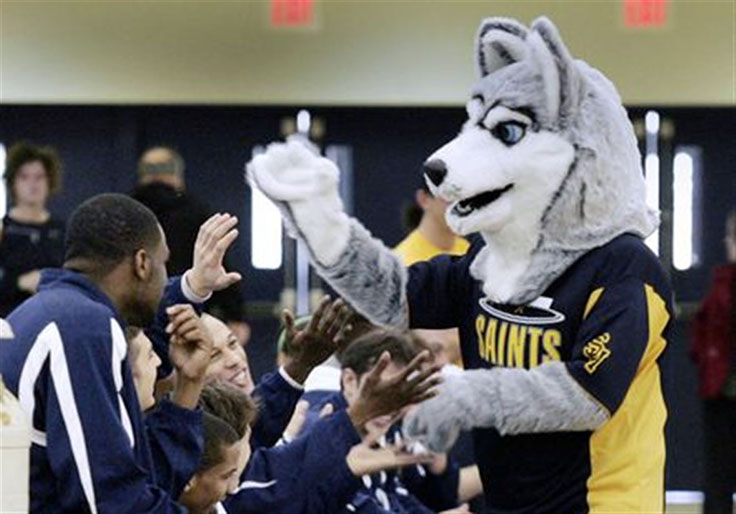
In 2008, Siena Heights University decided it needed a mascot. The school is known as the Saints. But that didn’t seem so fierce. So students voted on an alternative and came up with Halo the Husky, in part to thumb their nose at the Bulldogs of Adrian College, their cross-town rivals. “It’s kind of a shot at Adrian College, the bulldogs, because huskies are stronger and faster,” the student who submitted the winning suggestion said.
That’s just a start of the differences between big public institutions and Michigan’s top 14 independent colleges and universities, where students forge success by following their own path. The colleges are smaller and emphasize community over crowds. Often less expensive than public institutions, the independents boast higher four-year graduation rates and smaller class sizes for a truly unique and affordable experience.
Be bold. Be different. Go independent.
Alma Venture Program
Experience is everything. And Alma College is committed to making sure you have an opportunity to put what you learn in the classroom to work in a meaningful way. The College’s Center for Student Opportunity is committed to providing support services and access to practical experiences that enhance your education. In fact, the Alma Venture gives you the financial support to not just study your field, but experience it firsthand. As part of the Alma Commitment, the Alma Venture program provides up to $2,500 to offset the cost of your personalized experience.
Where will you Venture?
Your Alma Venture could take place on campus, or on the other side of the world. It could be credit-bearing—or not. The opportunities are endless!
You could travel abroad for an off-campus study program, see what it’s really like to work in your field through an internship, delve deep into a research project or, get hands-on clinical experience. Alma offers other experiential learning possibilities for students interested in leadership and service.
- See examples of the types of Alma Venture experiences you can pursue.
- View an overview of past experiences by academic area.
- Consider which type of experience is right for you and find YOUR Alma Venture.
The Alma Venture is another example of Alma College’s unwavering commitment to the success of their students and graduates. It’s the reason that Plaid Works!
Calvin University coming July 10
On July 10, 2019, Calvin College officially becomes Calvin University. The date coincides with Reformer John Calvin’s birthday, for whom the institution was named at its founding in 1876. The Calvin community will commemorate the significant milestone with a series of events, including a panel discussion, dedication service, and celebration cookout. View the full lineup of events.
“This is an exciting time in Calvin’s history,” said Michael Le Roy, president of Calvin University. “This change to university grants us permission to think and dream and hope and aspire to a great deal more as we engage with more learners around the world.”
What began nearly 150 years ago in a single classroom on Williams Street in downtown Grand Rapids, with one faculty member, one academic discipline, and just seven students, is now a university sprawled out over a 400-acre campus, offering more than 100 academic options to 3,700 students each year from more than 65 countries. It’s an institution of 250 Christ-centered faculty who are thought leaders in their fields. And, it includes an alumni network of more than 65,000 who are expressing Calvin’s mission to think deeply, to act justly, and to live wholeheartedly as Christ’s agents of renewal in the world.
“The college or university takes different forms over time, serves different populations over time in history. But that mission critically endures,” said Le Roy.
Extending reach, deepening roots
In becoming a university, and as part of Vision 2030, Calvin is aspiring to extend its reach and deepen its roots by expanding its global influence, growing as a trusted partner for learning, and deepening its commitment to the Reformed Christian faith.
“We have a distinctive and enduring Christian mission that we are excited to share with more people around the corner and across the globe,” said Craig Lubben, chair of the Calvin University Board of Trustees. “As we look to the future of Calvin, we are confident that this name change will help us better reflect who we are to audiences both familiar with and new to Calvin and propel us further as we fulfill a compelling vision.”
How Calvin will pursue this vision over the next decade is laid out in the university’s recently approved strategic plan. The plan includes four key goals.
Expanding programs, inviting new learners
First, the university will expand its offerings to undergraduate students and its use of digital systems and platforms to meet the needs of learners of all ages, all over the world; like Calvin’s new Spanish Immersion program, which will serve high school students; adding more graduate programs; and partnering on educational endeavors like the Calvin Prison Initiative in Ionia and the Lumina Partnership in Hong Kong.
“I’d like us to be a place where folks think ‘I wonder what Calvin has to offer in that space?’ And knowing then that it would come from a place that thinks deeply about its work and about how to do these things well,” said Cheryl Brandsen, provost.
Collaborating to create solutions
Second, Calvin will look for more ways to collaborate to enhance learning. Drawing on the strength of its scholarship and its depth of learning, it will direct institutional resources toward opportunities that encourage faculty and students to work across disciplines and with local and global partners in tackling complex issues.
“We need to work effectively with community partners. We need to hear lots of voices that are bringing their expertise, their own experience to the table to figure out how to solve problems,” said Amy Wilstermann, professor of biology.
Creating spaces to thrive
Thirdly, Calvin will invest in its learning environments as it supports a thriving educational community. This includes continuing to update classrooms to meet the needs of current and future learners, designing spaces that spur collaboration and innovation, and creating places like the Commons Union that promote community and support the well-being of people and creation.
“When we create places on campus where we encounter different ideas, different viewpoints, learning that perhaps we’ve never thought about before, that begins to shape not just the way we think, but the way we act and we live into those truths,” said Sarah Visser, vice president for student life.
Deepening Christian commitment
And finally, central to the university’s entire vision is helping faculty, staff, and students more fully embody a faithful and engaged Reformed Christianity.
“The Reformed project invites us to bring our whole selves into this academic institution. There’s no subject that’s off limits, because all knowledge belongs to God,” said Michelle Loyd-Paige, executive associate to the president for diversity and inclusion. “We are called to unpack this knowledge and to use this knowledge to make a difference in the world. Our Reformed faith invites us to do this, our Reformed faith compels us to do this, and our Reformed faith helps us to do this well.”
Learn more about Calvin’s history, the decision for the name change to Calvin University, and about Calvin’s vision for the next decade.
About Calvin University
Founded in 1876, Calvin University is a top-ranked, liberal arts university located in Grand Rapids, Michigan, that equips its more than 3,700 students from 45 U.S. states, 65 countries, and five Canadian provinces to think deeply, to act justly, and to live wholeheartedly as Christ’s agents of renewal in the world.
Calvin offers 100+ majors and programs, including graduate-level offerings in accounting, education, and speech pathology and audiology. Calvin students engage in intensive internships, community-based service learning, and significant research that results in publishing and presenting alongside world-class faculty.
Calvin also promotes Christian thought and action on an international stage in key areas of education and culture through its 12 centers and institutes. Discover more about Calvin.
A Student Perspective: Sometimes Second is the Perfect Place
According to Olivet College rising senior Rose Kemmerling, the perfect college fit is defined by a homey feeling and awesome supporters. For her, Olivet College fits that description to a T.
Second Family, Second Home
“I would encourage a student to attend Olivet College because it is not just a place, but also embodies a great feeling,” Rose said. “When I come back to campus after summer or Christmas break, I feel like I am at my home-away-from-home. It is hard to explain, but once you are on campus you can feel the family atmosphere and know that it is the place that you should be. The College is more than just the academic buildings, dorm rooms and the KC — it’s the people who become your second family.”
As a biology pre-medical major, member of the volleyball team, President’s Leadership Institute fellow and vice president of the Student-Athlete Advisory Committee (SAAC), Rose’s second family is comprised of her teammates, science professors and classmates.
“My relationships with professors at Olivet have helped shape me into the person I am today. Being a biology major with a pre-med focus, Organic Chemistry was one of the classes I had to take,” Rose explained. “I established a bond with Professor Susanne Lewis, Ph.D., because I was with her four times a week in addition to a lab on Tuesday nights and the extra time I spent in her office hours. I know that her door will always be open and that I can go to her when needed.
“I also know that my coach, Megan Merchant, is someone that I can go to. I have the chance to work with her as both a coach and SAAC faculty adviser, and I know that she wants to see me succeed. My athletic trainer, Kaitlin Sznajder, is someone who I know will always be there to encourage and support me — she was my rock when I got a concussion this season.
“I am lucky to have teammates, friends and a support system all wrapped up into one.”
Rose added that a very special member of her OC family and volleyball team is nine-year-old Lianna Shearer. Liana was recruited to the Comets from Team IMPACT, a nonprofit that connects children facing serious or chronic illnesses with college athletic teams. Lianna attends practices, games, team dinners and other events with the team. More importantly, Rose and the rest of the OC volleyball team are members of Lianna’s support system as she overcomes challenges related to cystic hygroma.
Class of 2020
While Rose’s undergraduate journey at Olivet is nearing its end, she says she’s not done building relationships and using those connections for good. Next up, she’s preparing for further studies that will help her enter the medical field.
“I have always known that I want to do something in the medical field,” Rose said. “This past summer I read an article about genetic counseling, and I knew that this career was perfect for me. Genetic counseling does not only allow me to help others, but it still allows me to be involved in the medical field and solving problems. My goal is to attend a two-year genetic counseling program after graduating from Olivet. I am preparing myself for my future career by shadowing genetic counselors, taking prerequisite courses for my program, adding a psychology minor, participating in crisis volunteering and studying for the GRE.”
With the support of her OC family, Rose has no doubt she’ll be able to achieve her goals.
“My experience as a Comet has helped shape me into the person, student and athlete I am today. I have gained life experiences and learned lessons that I will carry with me throughout my life,” she concluded.
Learn more about Olivet College by contacting the Office of Admissions at 800-456-7189 or admissions@olivetcollege.edu.
The Places You’ll Go: Greenhalgh Gift Opens Travel Possibilities to More Albion College Students
There is an incredible world out there ready to be explored and experienced for the college student willing and eager to find it. And nothing should stand in their way. The new Albion College Stephen I., ’74, and Susan Brochu Greenhalgh, ’75, Endowed Student Experience Fund will help make that happen. The $250,000 gift will support travel costs for students with financial need who wish to participate in faculty-sponsored academic trips.
“The stigma that attaches to students who can’t go because of financial issues, that bothered me,” said Greenhalgh, a Pontiac native who earned his bachelor’s degrees at Albion in anthropology and sociology, then earned his law degree from Washington & Lee University in Virginia in 1977. “Other students would come back to class and talk about their experiences and there were students who couldn’t go. I thought the stigma was very unfortunate.”
The gift is intended for travel only when a faculty member is present and purely for academic purposes. It should benefit multiple students each year.
Now retired and living in Boulder, Colo., after a career with the Bodman Law Firm in Detroit (where he was a corporate attorney for the Detroit Lions among other clients), Greenhalgh was first intrigued by the idea of helping deserving students on faculty-sponsored travel several years ago after talking with Albion religious studies Professor Jocelyn McWhirter, who for years has sponsored the biennial Holocaust Studies Service-Learning Project trip to Poland.
But there were other faculty-student events as well, including First-Year Seminar trips and the yearly excursion for the Center for Sustainability and the Environment, Greenhalgh noted.
“There were students who were missing out,” he said.
When McWhirter learned what the Greenhalghs were working on to help these students, she was pleased.
“It broadens their horizons,” she said. “I think these trips take students into an unfamiliar world. And when they enter an unfamiliar world, whether it’s in the U.S. or a destination outside the U.S, I think it gives them a new perspective on the world. It fosters skills of adjusting to another culture, adjusting to how to move within another culture, even learning a strange language. I think in the case of my trip, and other trips, it introduces students to new people and new history.”
And that’s exactly what the Greenhalghs were hoping for with this fund.
“This does two things,” said Greenhalgh, who has also served for 11 years as a member of the College’s Board of Trustees. “It helps the faculty and it provides more immediate opportunities for students from less affluent families. And I hope it provides life experiences by going to places like Europe and Africa for students who otherwise might not have that opportunity. It all falls under the rubric of experiential learning, and I believe that experiential learning can make all the difference in a liberal arts education.”
And not only will the new gift sustain current travel projects, it could lead to opportunities for more trips to different areas for more students.
“It’s great for students who don’t have the money,” McWhirter said. “These trips are an experience that can’t be had by staying where you are.”

